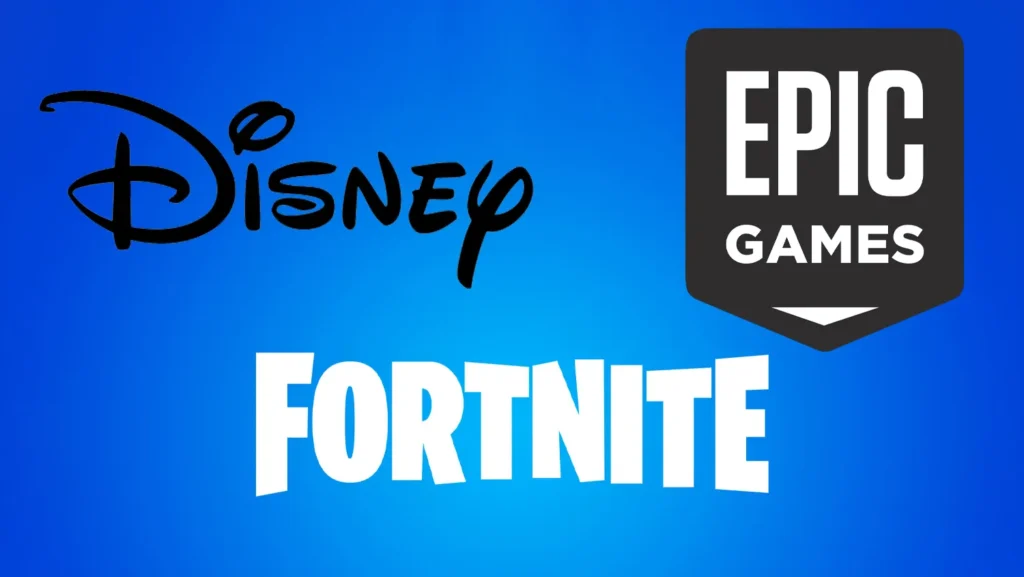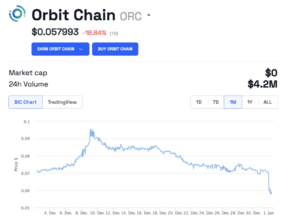- Epic Games and Disney are unveiling plans to collaborate on a groundbreaking project that could redefine the gaming landscape.
- Disney’s decision to collaborate with Epic Games reflects a strategic imperative to tap into Epic’s unparalleled expertise in online multiplayer gaming.
- Fortnite’s meteoric rise from a famous battle royale game to a thriving digital ecosystem underscores its pivotal role in the transition towards the metaverse.
In the ever-evolving gaming industry, buzzwords like NFTs and AI dominate the discourse; the metaverse concept continues to sway. Pursuing an interconnected, avatar-driven virtual world remains relentless despite the shifting terminology. This pursuit has recently gained significant momentum, with Epic Games and Disney unveiling plans to collaborate on a groundbreaking project that could redefine the gaming landscape.
Announced on Wednesday, the collaboration between Epic Games and Disney aims to create an expansive “entertainment universe” that seamlessly blends Disney’s iconic characters and narratives with Epic’s cutting-edge technology and Fortnite’s thriving social gaming ecosystem. This ambitious project sees Disney investing $1.5 billion in Epic, underscoring the magnitude of their partnership.
Promotional imagery depicts the collaboration as a series of futuristic, colourful islands suspended in space, interconnected by highways, and cantered around a radiant Magic Castle—an emblem of boundless potential. These highways serve as conduits, linking Disney’s rich intellectual property with the expansive realm of Fortnite, which has evolved from a hit game into a sprawling online social hub.
Also, Read Bitcoin Depository Receipts (BTC DRs): A Game-Changer for Institutional Investors in 2024.
While Fortnite initially gained fame as a third-person shooter featuring a battle royale format, its evolution has been remarkable. The game’s whimsical aesthetic and emphasis on player customization, facilitated by acquiring or purchasing “skins,” have endeared it to millions of players worldwide. However, Fortnite’s significance transcends its gameplay mechanics; it has transformed into a multifaceted platform that hosts diverse experiences, from psychedelic seasonal events to user-generated sandbox worlds.
Epic’s recent expansion efforts within Fortnite have been particularly noteworthy. In December, the Fortnite universe saw the simultaneous launch of three distinct games: Lego Fortnite, a Minecraft/Animal Crossing hybrid, and Fortnite Festival, a rhythm game developed by the creators of Rock Band. Such endeavours underscore Epic’s ambition to establish Fortnite as more than just a game but as a versatile digital ecosystem.
Disney and Epic Games Join Forces to Shape the Future of Gaming
Disney’s decision to collaborate with Epic Games reflects a strategic imperative to tap into Epic’s unparalleled expertise in online multiplayer gaming. By leveraging Epic’s technology, Disney gains access to Fortnite’s vast player base, which comprises over 100 million monthly users. This partnership represents Disney’s most significant foray into gaming, positioning the company to capitalize on Fortnite’s established infrastructure and vibrant community.
Moreover, Fortnite’s business model, characterized by free-to-play access and revenue generation through in-game purchases and brand licensing partnerships, aligns seamlessly with Disney’s objectives. The allure of acquiring Disney-themed character skins within Fortnite’s virtual store presents a lucrative opportunity for both companies, tapping into Disney’s extensive catalogue of beloved franchises.

While Meta, formerly Facebook, has rebranded itself in alignment with the metaverse concept, its focus on VR hardware may overlook the broader trends shaping the gaming landscape. Companies like Epic, Roblox, and Mojang have embraced the metaverse ethos, prioritizing avatar-driven virtual worlds accessible across multiple platforms.
Fortnite, Roblox, and Minecraft’s success underscores the appeal of user-generated content and the blurring lines between games and social networks. Fortnite’s high-fidelity graphics and robust animations set it apart, positioning it as a leading contender in the metaverse race. As Epic expands its cinematic universe to encompass partnerships with Lego, Rock Band, and now Disney, it stands poised to introduce a diverse audience to a virtual realm defined by social interaction and immersive experiences—a realization of the metaverse’s promise.
As technology advances and connectivity becomes increasingly pervasive, the vision of a metaverse—a shared, virtual space where individuals can interact, create, and explore—grows ever closer to reality. This concept transcends traditional gaming, encompassing social interactions, immersive experiences, and limitless creative possibilities. With Epic Games and Disney at the forefront of this movement, the boundaries between the physical and digital worlds continue to blur, offering unprecedented opportunities for entertainment and engagement.
At the heart of this evolution lies the emergence of Web3 gaming—a paradigm shift that emphasizes decentralized, community-driven experiences. Built on blockchain technology and powered by decentralized finance (DeFi), Web3 gaming promises to revolutionize how we play, create, and monetize digital content. As Epic Games and Disney embark on their collaborative venture, they are shaping the future of gaming and laying the groundwork for a new era of decentralized entertainment.
Fortnite’s meteoric rise from a famous battle royale game to a thriving digital ecosystem underscores its pivotal role in the transition towards the metaverse. Fortnite’s vibrant community, robust infrastructure, and innovative gameplay mechanics serve as a gateway to the interconnected virtual realm. By seamlessly integrating Disney’s beloved characters and narratives into its expansive universe, Fortnite further solidifies its position as a cultural phenomenon and a linchpin of the metaverse ecosystem.
Also, Read Web3 games partner with the NBA industry to enable in-game digital asset ownership.
As these titans join forces, they unlock new frontiers of imagination and creativity, transcending the boundaries of traditional entertainment. By harnessing the power of technology and collaboration, they empower players to embark on immersive journeys, interact with iconic characters, and shape their destinies within the metaverse. With each new partnership and innovation, the possibilities of the virtual realm expand, inviting individuals of all ages to explore, connect, and dream together in a world without limits.
In conclusion, the collaboration between both organizations represents a watershed moment in the gaming industry, heralding the convergence of entertainment, technology, and community-building. As Fortnite continues to evolve from a game into a multifaceted platform, the boundaries between virtual worlds and social networks blur, paving the way for a future where shared experiences transcend traditional gaming paradigms.
- SEO Powered Content & PR Distribution. Get Amplified Today.
- PlatoData.Network Vertical Generative Ai. Empower Yourself. Access Here.
- PlatoAiStream. Web3 Intelligence. Knowledge Amplified. Access Here.
- PlatoESG. Carbon, CleanTech, Energy, Environment, Solar, Waste Management. Access Here.
- PlatoHealth. Biotech and Clinical Trials Intelligence. Access Here.
- Source: https://web3africa.news/2024/02/19/news/epic-disney-partnership-gaming/
- :has
- :where
- $UP
- 1
- 100
- 2022
- a
- access
- accessible
- acquiring
- across
- advances
- aesthetic
- Ages
- AI
- aims
- alignment
- Aligns
- All
- all ages
- allure
- ambition
- ambitious
- an
- and
- animations
- apart
- appeal
- ARE
- around
- AS
- asset
- At
- audience
- BAND
- base
- Battle
- battle royale
- become
- becomes
- been
- beloved
- Bet
- between
- Beyond
- Billion
- blends
- blockchain
- blockchain technology
- blur
- both
- boundaries
- boundless
- brand
- broader
- BTC
- built
- business
- business model
- but
- by
- CAN
- capitalize
- character
- characterized
- characters
- cinematic
- closer
- collaborate
- collaboration
- collaborative
- community
- Community Driven
- Companies
- company
- comprises
- concept
- conclusion
- Connect
- Connectivity
- content
- continue
- continues
- Convergence
- could
- create
- Creative
- creativity
- creators
- crossing
- cultural
- customization
- cutting-edge
- cutting-edge technology
- December
- decentralized
- decision
- DeFi
- defined
- depository
- Despite
- developed
- digital
- Digital Asset
- Digital Content
- digital ecosystem
- digital worlds
- discourse
- Disney
- distinct
- diverse
- Diverse Audience
- Dominate
- dream
- each
- ecosystem
- efforts
- embark
- embraced
- emergence
- emerging
- emphasis
- emphasizes
- empower
- enable
- encompass
- encompassing
- endeavours
- engagement
- Entertainment
- EPIC
- Epic Games
- Era
- establish
- established
- Ethos
- events
- EVER
- evolution
- evolve
- evolved
- Expand
- expands
- expansion
- expansive
- Experiences
- expertise
- explore
- extensive
- facilitated
- FAME
- famous
- Featuring
- FESTIVAL
- finance
- Focus
- For
- Foray
- Forbes
- Forces
- forefront
- format
- formerly
- Fortnite
- from
- Frontiers
- further
- future
- futuristic
- gained
- Gains
- game
- game-changer
- gameplay
- Games
- gaming
- gaming in the metaverse
- Gaming industry
- gateway
- gearing
- generation
- graphics
- groundbreaking
- groundwork
- Hardware
- Harnessing
- Have
- Heart
- heralding
- High
- highways
- Hit
- hosts
- How
- However
- HTTPS
- Hub
- Hybrid
- iconic
- imagination
- immersive
- imperative
- in
- in-game
- increasingly
- individuals
- industry
- Infrastructure
- initially
- Innovation
- innovative
- Institutional
- institutional investors
- Integrating
- intellectual
- intellectual property
- interact
- interaction
- interactions
- interconnected
- intervention
- into
- introduce
- investing
- investment
- Investors
- inviting
- Islands
- IT
- ITS
- itself
- join
- Journeys
- just
- landscape
- launch
- laying
- leading
- leveraging
- Licensing
- lies
- like
- limitless
- limits
- linchpin
- lines
- linking
- lucrative
- magic
- max-width
- May..
- mechanics
- Meta
- Metaverse
- meteoric
- million
- millions
- model
- moment
- Momentum
- monetize
- monthly
- more
- most
- movement
- multifaceted
- multiplayer
- multiple
- narratives
- NBA
- networks
- New
- NFTs
- noteworthy
- now
- objectives
- of
- offering
- on
- online
- opportunities
- Opportunity
- or
- organizations
- over
- paradigm
- paradigms
- particularly
- partner
- Partnership
- partnerships
- Paving
- phenomenon
- physical
- pivotal
- plans
- platform
- Platforms
- plato
- Plato Data Intelligence
- PlatoData
- Play
- player
- players
- poised
- Popular
- position
- positioning
- possibilities
- potential
- power
- powered
- powerhouse
- presents
- prioritizing
- project
- promise
- promises
- property
- purchases
- purchasing
- pursuit
- Race
- Radiant
- Read
- Reality
- realization
- realm
- rebranded
- receipts
- recent
- recently
- redefine
- reflects
- relentless
- remains
- remarkable
- represents
- reshapes
- revenue
- revolutionize
- Rich
- Rise
- Roblox
- robust
- Rock
- Role
- royale
- s
- sandbox
- saw
- seamlessly
- seasonal
- sees
- Series
- serve
- set
- Shape
- shaping
- shared
- shift
- SHIFTING
- shooter
- signals
- significance
- significant
- Social
- social networks
- solidifies
- Space
- sprawling
- stands
- store
- Strategic
- success
- such
- suspended
- Sway
- Tap
- tapping
- Technology
- terminology
- than
- that
- The
- The Future
- the metaverse
- their
- These
- they
- this
- three
- thriving
- Through
- titans
- to
- together
- towards
- traditional
- transcending
- transcends
- transformed
- transition
- Trend
- Trends
- underscore
- underscores
- Universe
- unlock
- unparalleled
- unprecedented
- unveiling
- users
- Vast
- venture
- versatile
- vibrant
- Virtual
- Virtual space
- virtual world
- virtual worlds
- vision
- vr
- VR Hardware
- Way..
- we
- Web3
- web3 gaming
- webp
- Wednesday
- which
- with
- within
- without
- world
- world’s
- worldwide
- zephyrnet













